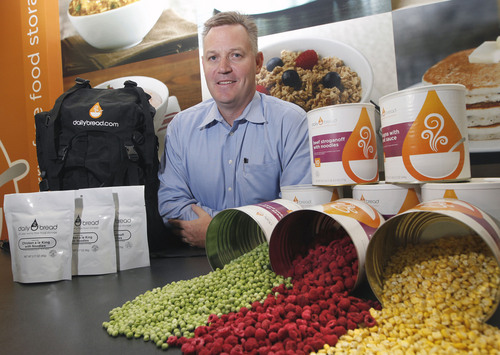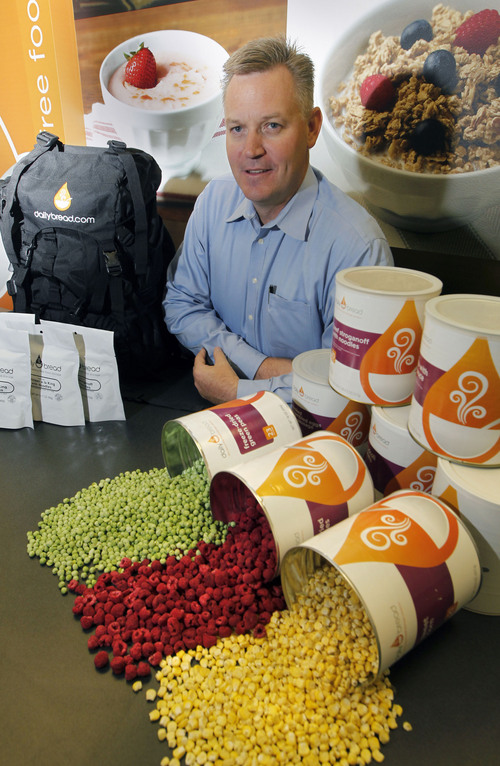This is an archived article that was published on sltrib.com in 2013, and information in the article may be outdated. It is provided only for personal research purposes and may not be reprinted.
After two wars, numerous natural disasters and an economic downturn, Americans suddenly have a voracious appetite for survival skills.
They're researching underground bunkers, buying freeze-dried food and watching television reality shows like "Doomsday Preppers."
But long before "prepping" became popular, faithful members of The Church of Jesus Christ of Latter-day Saints had mastered the art of food storage and emergency preparedness.
It's a skill passed down from their pioneer ancestors, says Steven Peterson, managing director of welfare services for the Utah-based LDS Church.
From the moment the pioneers started their westward trek, growing and storing food were critical, Peterson told members of the Association of Food Journalists who met recently in Park City to learn about Utah's food culture.
He said the pioneers would establish crops in one area before continuing on, knowing that the companies that followed would need the food.
"From the early days of our church, it was important to have food for themselves and others coming," Peterson said during a panel discussion on food storage.
Once the pioneers arrived in the Salt Lake Valley, growing and preserving food became a necessity, the only way to endure harsh winters, droughts and locust invasions, he said. "Storing food was essential to survival."
The practice continues in modern times with LDS leaders encouraging members to put aside at least a three-month supply of food, water and money for the unexpected, whether that's unemployment, sickness or natural disasters.
Not the apocalypse, said Peterson. "We try not to teach that the world is ending."
But for food storage to work, he added, it has to be more than "store and ignore."
That may be one reason food storage also has become a growing business in Utah, with several companies manufacturing, packaging and selling dehydrated and freeze-dried foods.
"It's one of the hottest-growing categories" in the market, said Mark Hyland, CEO of Daily Bread.
The Kaysville company, which specializes in freeze-dried or just-add-water packets, had more than $300 million in sales last year. And officials expect that number to increase between 5 percent and 10 percent.
Other Utah food-storage companies include Augason Farms in Salt Lake City, Nuvona Premium Foods in Orem and Wise Food Storage in Centerville.
Hyland said fear is the main reason people start creating an emergency food stash. "It takes three to four major events" before people decide to store food.
He said the attacks in Benghazi, Libya, the 2012 presidential election and Hurricane Sandy all combined to "drive the category through the roof."
The trend is nothing new.
"Putting something away for a rainy day," Hyland said, "goes back to the Depression."





